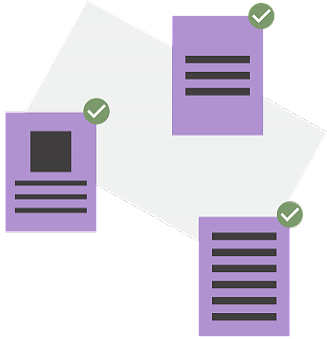News

New VAT penalties and interest payments
The new penalties will impact businesses who submit their VAT returns or pay their VAT late. The first monthly returns and payments affected by the penalties are due by 7 March 2023.
The late payment penalties and points-based late submission penalties were introduced from 1 January 2023, replacing the VAT default surcharge, and apply to accounting periods which start on or after that date.
The penalties for late VAT returns also apply to businesses that submit nil returns and repayment returns. Changes have also been made to how interest is calculated.
The changes to VAT penalties and interest payments are:
These work on a points-based system. For each VAT return submitted late, HMRC customers will receive a penalty point until they reach the penalty point threshold – at which stage they will receive a £200 penalty. A further £200 penalty will also apply for each subsequent late submission while at the threshold, which varies to take account of monthly, quarterly and annual accounting periods.
If a VAT payment is more than 15 days overdue, businesses will pay a first late payment penalty. If the VAT payment is more than 30 days overdue, the first late payment penalty increases and a second late payment penalty will also apply. To help customers get used to the changes, HMRC will not charge a first late payment penalty on VAT payments due on or before 31 December 2023, if businesses either pay in full or a payment plan is agreed within 30 days of the payment due date.
HMRC will help businesses that cannot pay their VAT bill in full. HMRC customers may be able to set up a payment plan to pay their bill in instalments. After 31 December 2023, if a HMRC customer proposes a payment plan within 15 days of payment being due and HMRC agrees it, they would not be charged a late payment penalty, provided that they keep to the conditions of the payment plan. Late payment penalties can apply where proposals are made after the first 15 days, but the agreement of the payment plan can prevent them from increasing.
HMRC has introduced both late payment and repayment interest, which will replace previous VAT interest rules. This brings the new regime in line with other taxes.
Claiming tax relief for working from home
You may be able to claim tax relief for some of the bills you have to pay because you have to work at home on a regular basis. You cannot claim tax relief if you choose to work from home. You can only claim for things to do with your work, for example, business telephone calls or the extra cost of gas and electricity for your work area. You cannot claim for things that you use for both private and business use, for example, rent or broadband access. From 6 April 2020 your employer can pay you up to £6 a week (£26 a month) to cover your additional costs if you have to work from home. For previous tax years the rate is £4 a week (£18 a month). You will not need to keep any records.
How much tax relief will I get?
You must have paid tax on the earnings from your job in the year you are claiming for. You’ll get tax relief based on what you’ve spent and the rate at which you pay tax.
Example
If you spent £60 and pay tax at a rate of 20% in that year, the tax relief you may receive is £12.
You can claim using a paper P87 form or online. If you wish to claim online you will need to have an online personal tax account with HMRC. You will also need the following information to hand:
- Your P60 from your employer
- Details of you expense you wish to claim
- Bank account details for any refund to be paid in to
If you do not have a personal tax account and wish for us to help you with the process please get in touch.
If you would like for us to complete your paper form we can do this for a fee starting from £35.
